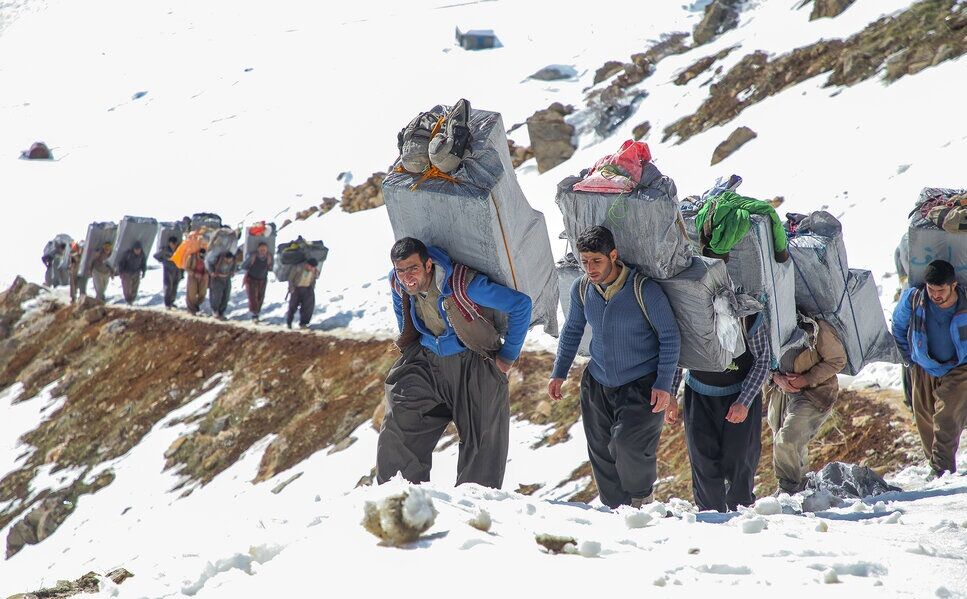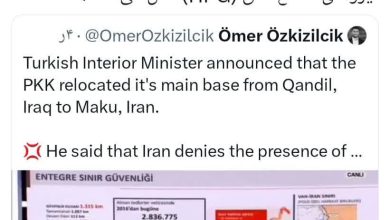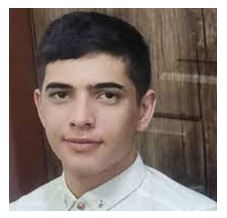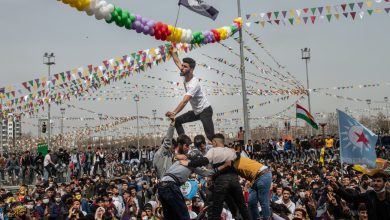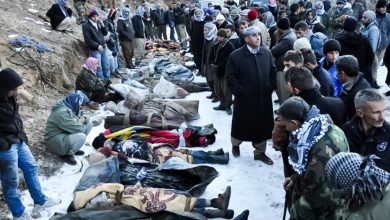“Kolberi”
It is winter in Piranshahr, Iran. At the foot of the snow-capped mountains, a long row of dots are visible, slowly moving towards Haji Omran, a Kurdish-Iraqi border town. Dozens of men gather at a rally point, pulling heavy loads from Iranian pick-up trucks “Paykan Bar” and old blue Nissan jeeps onto their backs. The sun reflects on the rugged winter landscape that the Kolbers, border residents who live from smuggling, face every day, at the risk of their lives. The mostly heavy load is unloaded on the other side of the border into a new series of pick-ups. Life on the border is hard, in a mountainous area that’s mostly underdeveloped.
Smuggling is an age-old profession in the Middle East, where borders are a lot less passable than in Europe. The other borders of Iran, such as the border with Afghanistan, Pakistan, the sea route across the Persian Gulf, also have smuggling routes. However, the most famous and largest smuggling industry are in the Kurdish provinces of West Azerbaijan, Kermanshah and Kordestan. The phenomenon “Kolberi” is also known in Turkey, on the borders with Iraq and Iran.
“Kolberi” as a phenomenon is by itself a documentation of the greatest misery and absurdity of the maximum pressure embargo policy imposed on the people of the Iran. Kolbers transport all kinds of goods that are legal in Iran, but sanctioned by the outside world: from diapers, LED TVs, fridges, washing machines, air conditioners, cigarette brands such as Winston and Marlboro, to even medicines that are missing in Iran. In addition, illegal goods, such as alcohol, are also transported, of which both the consumption and sale have long been banned by the Islamic Republic of Iran. It’s a matter of supply and demand, and the rewards of the kolbers vary by load.
Iranian Kurdistan has been the victim of harsh sanctions that have hit all of Iran for decades, coupled with industrial underdevelopment due to the rugged terrain, inaccessibility and the decades-long struggle between the Kurdish opposition and the Iranian authorities. The Iranian government has implemented several initiatives to reduce the danger of this arduous profession and legalize the activities, but industrial development remains difficult due to the interference of these opposition groups.
Hossein
I speak to Hossein, a resident of the border village of Kohne Lajan, who has been doing this dangerous work for decades. Hossein is in his late forties with bright blue eyes, a tad balding and a deep, loud voice. He confessed with lights in his eyes that he had smuggled whiskey in his twenties, because the profit was much higher than the washing powder he now transports, but has not done so for a long time. The kolbers who transport illegal goods often go off the regular paths to avoid checks by border guards. This naturally increases the risk of falls, avalanches and skirmishes with authorities. Because the US wanted to further isolate Iran economically, the smugglers are now also being persecuted by the autonomous Kurdish region of Iraq, where the Kurdish Peshmerga largely tolerated them until a few years ago.
Hossein whispers when he tells me that there is also a group of PDKI fighters staying in this border area. In the spring, PJAK often travels here, although they reside more in the regions of Choman and Serdesht. These groups also use the irregular paths, which is why the IRGC border guards regularly open fire at whoever is caught roaming elsewhere. Border guards justify the order to fire because they are afraid that groups like this will also transport weapons, drugs, or armed forces into the country. This makes it a risky business. After all, Kolbers who transport illegal goods run away too when they encounter border guards, making it difficult for them to distinguish to which group they belong.
Hossein himself now has a “kolber card” and only transports legal goods. He can retire in 4 years, and he and his wife and children are insured for medical expenses and accidents through special legislation. This card also makes crossing the border legal, and is part of a special import and export law for border residents.
Iranian law was amended two decades ago with exemptions for people living less than 20 kilometers from the border. These people enjoy customs exemptions that other Iranians don’t. This is because, according to the Iranian government, due to some family and ethnic ties with the border residents of neighboring countries, they cross the border more than other citizens and move goods on both sides of the border to meet their needs. This card gives unconditional, free access to border crossings, where other Iranians would have to pay customs fees. As a result of the mentioned legal exemptions, border residents have different conditions for importing goods into the country than others, and goods will remain untaxted.
Hossein is satisfied with his job as Kolber, as it is much more profitable than most other unskilled jobs in the region and he “returns home to join the Mrs. before lunch”. His eldest son, who works in a sugar cube factory, earns only one-third of Hossein’s profits.
Choman
In Iraqi Kurdistan last summer, I also visited the border town of Choman. Choman’s mountain range borders the nearby Iranian city Baneh. Choman’s smuggling route is only accessible in good weather. Men put on fleece boots and brave a river containing of melted snow. On the Iranian side, the cargoes are loaded into jeeps and taken to the city. Baneh is in fact Iran’s center for foreign electronics. The bazaar of this border town is filled with TVs, refrigerators, washing machines, air conditioners and the craziest kitchen appliances, from brands such as Bosch, Samsung and LG, who entered the country through the kolbers in Choman or Baneh’s legal border crossing Sayranbend, and then are sold further across the country.
The smuggling route here seems less difficult, after all, it is only a few hundred meters walk and the boots do not really get people wet, but they also earn less well. On the Iraqi side of the mountain stream, the PJAK levies tolls on the dealers and kolbers, each car and pick-up has to pay separately. After all, Choman is close to the Qandil Mountains, where this group has its headquarters.
Danger
“Kolberi” remains a dangerous profession. There are many risks involved. The area that the Kolbers have to brave is very rough. Every year, dozens of Kolbers – unclear if they smuggle illegal goods or not – fall victim to skirmishes with the authorities, fall from height, hypothermia, disorientation and getting lost in the snow, and even forgotten landmines, which are a bitter reminder of the war between Iraq and Iran.
It is a bizarre world, the smuggling on the Iranian-Iraqi border, where the often impoverished Kurdish population transports heavy loads in a paradox of sanctions, prohibitions and also freedoms of import and export, in a gray area between Iranian border guards, Iraqi-Kurdish Peshmerga and armed opposition groups, while executing their semi-legal and semi-illegal occupation.
1.https://reportersonline.nl/koerdische-smokkelaars-en-de-iraans-iraakse-grenshandel-vol-gevaren/

